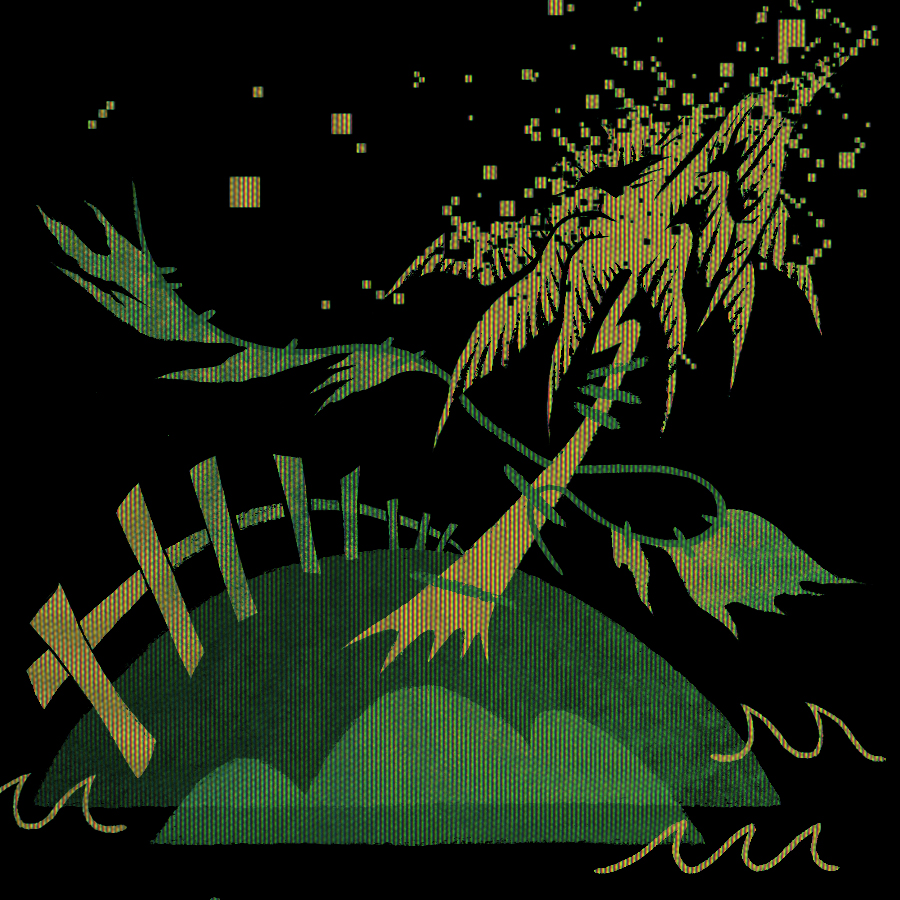“What happens to a country without land? Where will we call home?” Such are the considerations facing Tuvalu, a small island nation in the South Pacific, where sea levels are increasing at twice the pace of the worldwide average. Tuvalu, with a population of around 11,000, is spread across a set of extremely low-lying and narrow islands. The majority of the country is around three meters above sea level—a vulnerability that is augmented by the island’s thinness: At its most extreme, the nation is only 20 meters wide. By the end of the century, Tuvalu is expected to be uninhabitable.
In response to this impending catastrophe, at the 2022 UN Climate Change Conference (COP27), Simon Kofe, Tuvalu’s Minister of Justice, Communication, and Foreign Affairs, announced that the country would create a digital twin of itself in the metaverse. He stated, “Our hope is that we have a digital nation that exists alongside our physical territory, but in the event that we lose our physical territory, we will have a digital nation that is functioning well and is recognized by the world as the representative of Tuvalu.” He also emphasized that the initiative had the potential to preserve Tuvaluan culture and recreate Tuvalu’s physical landscape. One of Tuvalu’s most at-risk islands, Teafualiku Islet, has already been recreated online. The rest of the island may soon follow suit: Tuvalu, it seems, will soon be reduced to Tuvalu.tv, an online platform in the metaverse. But even Tuvaluan officials do not believe in the potential of the metaverse to support citizens preparing for the loss of their physical home.
Despite hopes and plans for a digital nation, Tuvalu is devoting most of its resources to preserving its physical islands—working to build sea walls, raising the lowest-lying islands, and advocating for international climate action. However, the nation is unprepared for the likely event that its adaptation efforts are insufficient. The Tuvaluan government’s official policy is to stay on the islands “come what may,” with no concrete plan as to where Tuvaluan people would relocate in the event that the islands become uninhabitable. In 2019, Tuvalu’s then-Prime Minister Enele Sopoaga declared, “Moving outside of Tuvalu will not solve any climate change issues… If you put these people in the middle of industrialized countries it will simply boost their consumptions and increase greenhouse gas emissions.” He called relocation discussions “self-defeatist” and asserted that there was no “plan B” other than to save the real Tuvalu. Although Sopoaga is no longer in office and made these claims before Tuvalu decided to digitize, Tuvaluan policy still reflects this sentiment today.
Now, to save Tuvalu, the government claims that the digital nation will retain Tuvalu’s national sovereignty. For example, Kofe and other officials aim to use the new platform to maintain control of Tuvaluan waters and fishing rights in the event that the islands disappear. So, can Tuvalu exist as a sovereign nation through the metaverse?
In terms of international law, Tuvalu finds itself in completely uncharted territory. The definition of state sovereignty used by the United Nations requires a state to have “a) a permanent population; b) a defined territory; c) a government; d) and the capacity to enter into relations with other states.” A virtual Tuvalu will evidently struggle to meet these conditions. Issues also arise when considering where the Tuvaluan people will live physically and what role their location will play in Tuvalu’s sovereignty and independence. Notably, some political entities exercise de facto sovereignty over their own people even when unrecognized by international bodies like the United Nations.
Additionally, virtual Tuvalu will fully rely on Meta, an American corporation. If Meta stops operating for any reason, Tuvalu will vanish. Can a country with such a reliance on a single US corporation be considered a sovereign state? Even if Tuvalu creates its digital twin independently of Meta, it would still need to create data centers for the virtual platform on another nation’s land.
The question of whether digital sovereignty is possible has important consequences for the future of cyberspace and the conception of a state. At the moment, due to a plethora of legal issues and contradicting notions of sovereignty, it appears not to be. But regardless of whether a real virtual state is currently possible—living in a virtual world is not truly living. A plethora of research exists, especially since the pandemic, to prove the negative physical and mental outcomes of living online.
Tuvaluan government officials’ valiant efforts at adaptation reveal that they, too, likely understand that the digital Tuvalu is not truly intended to succeed its physical islands. Rather, Tuvalu is using shock value to get the world’s attention. But their attempt to do so through the metaverse has been counterproductive: The digital twin plan is riddled with contradictions, sometimes exacerbating the problem that created it and other times creating new ones. Instead of piloting provocative projects, Tuvalu and the international community must focus directly on providing Tuvalu with the aid it is owed. The country’s digitization campaign has suggested—correctly so—that nations with a large carbon footprint and lots of money, like Australia and the United States, have a special responsibility to reduce their emissions and protect endangered small island nations. This position is important given that in 2020, US and Australian carbon emissions reached 4,535,300,000 tons and 386,000,000 tons, respectively, while for the past 20 years, Tuvalu has consistently emitted 10,000 tons of carbon annually. Bigger, richer countries that have contributed to climate change—and therefore Tuvalu’s plight—must help Tuvalu to conserve its land, mitigate climate change, resettle Tuvaluan and other climate refugees, and preserve its culture, even in a diasporic context. This obligation from large emitters to small island nations—not Tuvalu.tv—ought to be the focus of our discussion.
